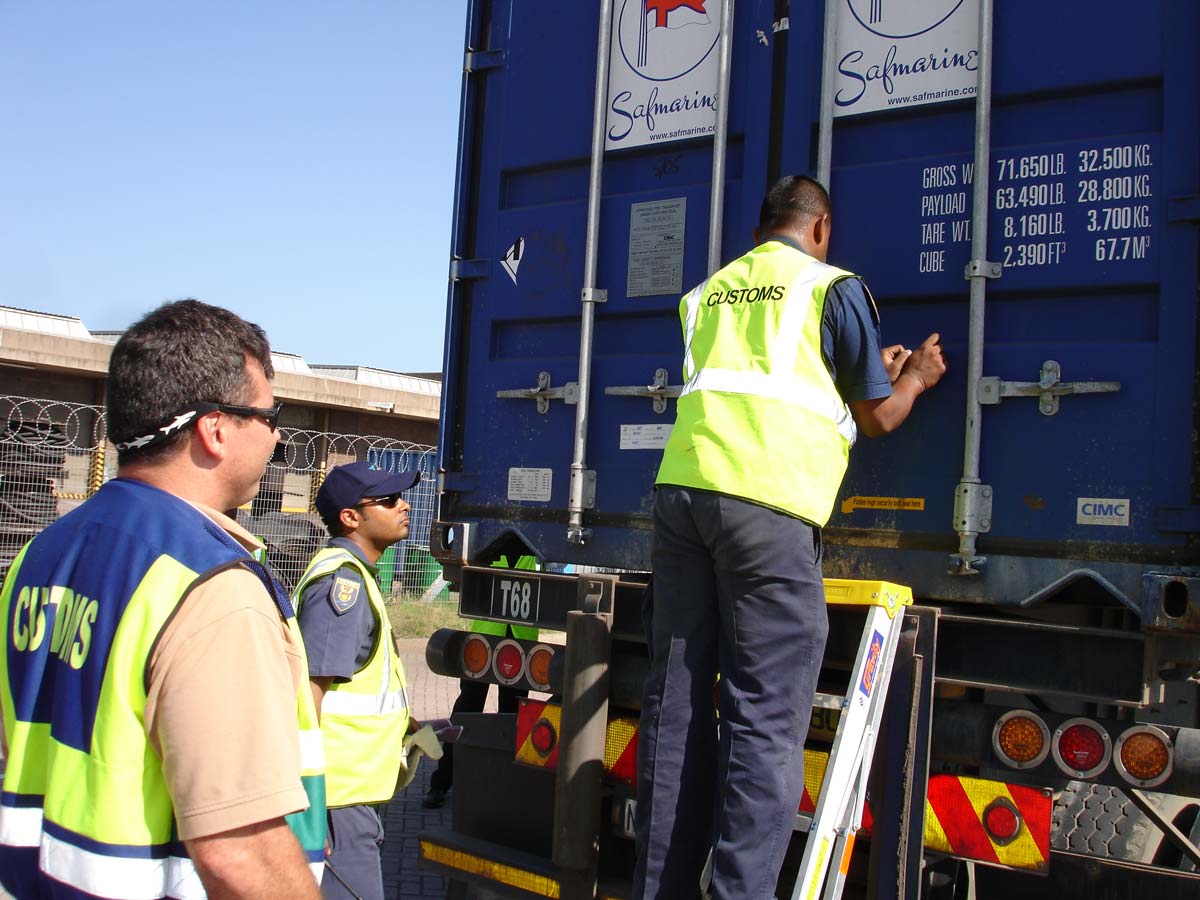Importers To Pay More As Customs Begins 100% Cargo Inspection
Even though, the Nigeria Customs Service (NCS) has confirmed that the 661 pump-action rifles imported through the Lagos Port and intercepted of Lagos Highway earlier in the month was not dropped for examination, the top management of the service has asked officers to begin 100 percent physical examination on all containers coming into the country through the seaports and land borders.
The 100 percent physical examination was as a result of non functional scanners across the seaports and border points across the country.
However, investigations have shown that the service have begun 95 percent physical examination at Apapa and Tincan ports both in Lagos.
The physical examination was as a result of the directive of the Zonal Coordinator, Zone “A” of the Nigeria Customs Service, Assistant Comptroller General of Customs, ACG Abueh Monday.
The ACG in a statement directed officers to be more thorough and conduct 100% examination on containers.
The ACG said, “100 percent cargo examination is a must for all cargo. Do not take anything for granted. Do not sign any document if you are not sure. Sign only what you know and be very certain about it.”
However, the conduct of the 100 percent physical examination has led to congestion at the ports and importers are expected to loss huge amount of money for demurrage charges that will be accrued to terminal operators at the expense of the economy.
However stakeholders have expressed that any additional cost accrued during the process of clearing a cargo will be transferred to the final consumer
It was gathered that while terminal operators charge N62,682 for a 20-feet container, while N87,682 is charged for a 40-feet container that would be cleared within the free three day period, they charged N14,500 for a 40ft TEU container while a 20ft container goes for N10,500 per day for demurrage.
The demurrage charges depend on the number of days the consignment stayed at the port before It was moved out to it final destination.
However, now that the service has started 95 percent examination, importers are set to lose a whooping N9.1million to terminal operators daily as demurrage.
It was gathered that on a daily basis Customs can only examine four out of every 400 containers positioned daily by terminal operators.
Also, about 250 teu is positioned on a daily basis at Tin-Can port with possibility of Customs examination officers examining about 20 across all terminals daily.
Speaking on condition of anonymity, a top Management staff at largest container terminal in Apapa port said it’s terminal position 400 TEU daily and with Customs directive of 100 percent examination on containers, Customs can barely physically examine five containers in a day.
He however said that physical examination mean more money for them because importers and Shippers will pay more.
According to him, 100 percent physical examination will mean demurrage for us an that will translate into money for us daily.
“100 percent examination means more money to us but the truth is, it is at the expense on the economy. We will get more money but the economy will suffer and inflation will rise above its present position.”
When asked the way out, he said, “everybody knows the way out which is fixing the faulty scanners,” he told our correspondent.
Also, it was further gathered that 100 percent examination will spell doom for manufacturers who are not on fast track.
Raw materials for production would be trapped at ports and huge amount of money would be paid as demurrage to eventually get it out.
Investigation further revealed that Customs examination officers only conduct examination for eight hours – 9am to 4pm- and this would lead to having huge backlog of unchecked containers at the ports.
However industry stakeholders have described 100 percent cargo examination as anti trade and against the World Customs Organisation convention on Trade facilitation
Speaking on this development, the National President, National Council of Managing Directors of Licensed Customs Agents (NCMDLCA), Lucky Amiwero said physical examination embarked upon by customs officers as is the case now was not the best for trade and cumbersome.
His words, “The current inspection process of 100 percent physical examination contravenes the global Multi- Layered Security protocol the WCO SAFE Framework that was adopted by World Customs Organization (WCO) globally after the destruction of the twin tower of World Trade Centre in America on September 11, 2001 by Al Qaeda.”
Amiwero also stated that laborious inspection at the ports encourages delay and the payment of rent and demurrage by importer/ licensed Customs Agents.
“Laborious Inspection without scanners that is the essential tool approved under the Destination Inspection (DI) scheme in 2006 is to facilitate and secured trade, which encourages delays and the payment of rent and demurrage by importer/ licensed Customs Agents.”
Also speaking, the President Shippers Association Lagos State (SALS), Rev. Jonathan Nicol who noted that 100 percent physical examination will only enrich some set of people (Terminal Operators) said security of lives in property in the country comes first.
“100 percent physical examination will not facilitate trade but at the same time security comes first but if we have consignment that is against the law it shouldn’t be allowed to leave the port.
“Everything shouldn’t be money and any situation we find ourselves today, we created it and it will be allowing some people to benefit from delays at the port. We have been saying that people should declare what they have which have brought us to where we are today.”
On his own part, a former Public Relations Officer o Save Nigeria Freight Forwarders Importers Exporters Coalition (SNFFIEC) David Pius, also acknowledged that 100 percent physical examination will not only affect trade facilitation but also increase demurrage charges on containers.
He said, “There is no way Customs can conduct physical examination in 30 minutes because unstuffing and stuffing a container is not an easy thing to do.’





